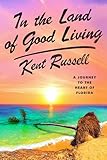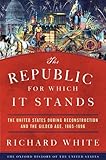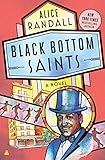This was the year I finally, belatedly, decided to figure out why people make such a fuss about Joy Williams. Since 2015, her career-spanning collection, The Visiting Privilege: New and Collected Stories, has been staring down from my bookshelf, daring me to find out if Williams’s fiercely dedicated fans know what they’re talking about. They do. These 33 stories drawn from earlier collections, plus 13 new ones, are a summation of a four-decade career that proves what her fans have known all along: Joy Williams is a master of the short story, one of our great fiction writers, a maker of sentences that veer and startle and delight, a conjurer of worlds that are at once unnerving and familiar, disorienting yet able to provide solace and even, on occasion, the possibility of redemption. She reminds us, in case we’ve fallen asleep, that the world is a deeply strange and wondrous place.
This collection’s title story
displays all of Williams’s gifts. The words in her sentences are both unruly
and surgically precise. They may bushwhack you, but they’re just doing their
job, which is to remind us that we’re all alone in a meaningless world, as this
story’s protagonist, Donna, puts it after she visits her friend Cynthia in a mental
institution and gets sucked into the lopsided orbit of Cynthia’s roommates, an
elderly woman and two obese teenagers. While playing cards with the elderly
woman, Donna imagines she’s on a boat, taking a short safe trip to a lovely
island. Later she imagines she’s a docent in the mental institution. She
imagines the fat teenagers are her jailers. Walking down a hospital corridor,
she imagines she’s a virus moving through someone’s body. This unfocused yearning
to escape is shared by many of Williams’s characters, and Donna soon comes to
believe she has found her vocation – her way out of her aimless life – in doing
small favors for the elderly lady. Of course, since this is a Joy Williams
short story, she’s wrong. The woman tips over dead while everyone is eating
Jell-O, and eventually Donna’s visiting privilege is revoked. She goes home to
her same old life, changed but still trapped.
When I say Williams writes
sentences that veer and startle and delight, here’s what I mean: “A year after
my mother moved farther out, she became obsessed with building a tortoise
enclosure.” And: “People preferred the equivocal, they found comfort in it.
They were heartened by the news that more panthers were killed by one another
than by mercury or cars.” And: “The inhabitants of the place were in many
respects peculiar, poor and cruel with extraordinary dark eyebrows, but the
cream teas were excellent. The dogs were polite. The gulls were big, the crows
enormous.”
The story “Marabou” takes its title
from a species of stork – animals, as the preceding sentences indicate, are
everywhere in Williams’s world, in trees, on playing cards and rugs, on the
roofs and in the back seats of cars, in cages, in oceans. Rats pour out of a
burning palm tree. A woman swims with a dolphin that sports a stupendous boner.
Animals are both a barometer of human malfeasance and a possible ticket to
redemption from that malfeasance. “Marabou” opens with a woman named Anne
attending her son Harry’s funeral, which is not going well because some sort of
celebrity is being buried simultaneously at a nearby grave, and mourning fans
are carrying on loudly under a lurid striped tent. It gets worse: “Still more
fans pressed against the cemetery’s wrought-iron gates, screaming and eating potato
chips.” Potato chips! Harry died of an unspecified cause, probably a drug
overdose, and Anne dutifully takes his friends out for a lavish lunch after the
burial: “They had calamari, duck, champagne, everything.” With six words and
three commas, Williams captures the manic way people act in the immediate
aftermath of death. She is a master of this kind of compression. The fuss, it
turns out, is richly merited.
C Pam Zhang’s debut novel, How Much of These Hills Is Gold, was long-listed for this year’s Booker Prize. With vigorous, inventive prose, the novel makes visible characters who have gone too long unseen, both in American history and literature: the Chinese-Americans, both immigrants and native-born, who worked the mines and railroads that were so vital to America’s westward expansion. This novel is much more than a corrective, though; it’s the arrival of a thrilling new talent.

Kent Russell’s In the Land of Good Living: A Journey to the Heart of Florida was his uneven follow-up to his much-praised 2015 debut collection of essays, I Am Sorry to Think I Have Raised a Timid Son. In the new book, Russell and two friends walk from the Florida panhandle to Miami, filming as they go, hoping to produce a documentary movie (and this book). The book’s sharpest insight into the soul of Florida (and America) comes from Russell’s “unapologetically Canadian” traveling companion Glenn, who blurts out: “All of this Rebel flag, meth lab, Breaking-Bad-slave-compound militia business. Like, ‘I got a God-given right to defend my crappy, ignorant life! You wanna make my existence better? You wanna send my kids to school? You wanna give me healthcare? Fuck you!’” I haven’t read a better explanation why 74 million Americans voted for Donald Trump this year.

Sam Wasson’s The Big Goodbye: Chinatown and the Last Years of Hollywood is a spellbinding take on how the making of a great movie heralded the death of the auteur-driven New Hollywood. The book has many pleasures, including extensive interviews with the perfectionist director Roman Polanski and the high-flying producer Robert Evans, plus a scathing portrait of the film’s femme fatale, Faye Dunaway. But the book’s major revelation, for me, was that Robert Towne, who won the best original screenplay Oscar in 1975 for his Chinatown script, got extensive – and un-credited – help from his friend and long-time collaborator Edward Taylor. So much help, in fact, that when Taylor declined to insist on a screenwriting credit, his stepdaughter pleaded with him: “What are you doing? You can’t not get credit. It’s not fair and it’s not accurate.” Wasson fails to come up with an explanation for Taylor’s demurral, which leaves open an intriguing question: Should Robert Towne’s Chinatown Oscar come with an asterisk?




Much of my reading this year was research for a nonfiction book I’m writing, and I took a deep dive into 19th-century American history. A few of the highlights were Edmund Morris’s magisterial biography, Edison, which moves backwards in time to paint a richly nuanced portrait of a genius. Andrew Delbanco’s The War Before the War: Fugitive Slaves and the Struggle for America’s Soul from the Revolution to the Civil War argues that American slave owners were conflicted from day one, in 1619, when the first enslaved Africans came ashore at Point Comfort, Virginia. The simple truth, Delbanco contends, was that the slave-holding Founding Fathers and people of like mind learned to live with their misgivings about slavery because it served their interests. It was convenient, it was profitable and, perhaps most crucial of all, it had always been so. “All other arguments on its behalf were bogus…” Delbanco writes, “and somewhere, in heart if not head, they knew it.” Thomas J. Schlereth’s Victorian America: Transformations in Everyday Life is a delightful, street-level look at the exuberance that colored the ways Americans worked, played, learned, shopped and traveled in the late-19th and early-20th centuries. In American Genesis: A Century of Invention and Technological Enthusiasm, Thomas P. Hughes takes us into the fertile minds of the American inventors who, in the century after the Civil War, produced a “gigantic tidal wave” of life-changing devices, including the telephone, gyrocompass, electric light, automobile, wireless telegraphy, phonograph, radio, airplane and moving pictures, to name a few. Despite its clunky title, Richard White’s The Republic for Which It Stands: The United States During Reconstruction and the Gilded Age, 1865-1896 is a nimble and deeply researched chronicle of how this nation marched from a calamitous war to the buzzing threshold of the modern age. Like all of the best historical writing, it lets us live briefly in the messy past so we emerge wiser about how the world we live in today came to be.

As this grim year winds down, I’m dipping into the radiant new novel from Alice Randall, Black Bottom Saints, which derives its title from the long-gone African American neighborhood in Detroit that once pulsed with life and vivid characters, including Dinah Washington, Joe Louis and Randall’s protagonist, Joseph “Ziggy” Johnson, newspaper columnist, man about town, and founder of the Ziggy Johnson School of the Theatre. If the promise of the early pages holds up, Black Bottom Saints will soon go up on my long and growing shelf of unforgettable books inspired by my battered and beloved hometown, Detroit. If ever there was a year that reading saved me, this was it.
More from A Year in Reading 2020
Do you love Year in Reading and the amazing books and arts content that The Millions produces year round? We are asking readers for support to ensure that The Millions can stay vibrant for years to come. Please click here to learn about several simple ways you can support The Millions now.
Don’t miss: A Year in Reading 2019, 2018, 2017, 2016, 2015, 2014, 2013, 2012, 2011, 2010, 2009, 2008, 2007, 2006, 2005
The post A Year in Reading: Bill Morris appeared first on The Millions.
Source : A Year in Reading: Bill Morris













